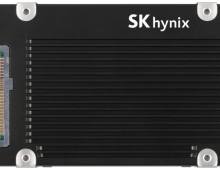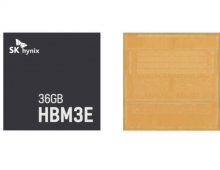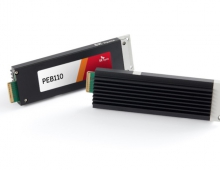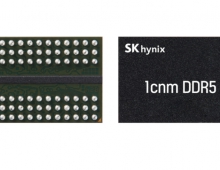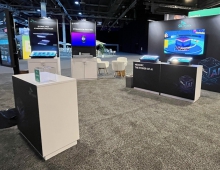
Elpida Develops 30nm Process 2-Gigabit DDR3 SDRAM
Elpida Memory today announced that it had completed development of a 30nm process 2-gigabit DDR3 SDRAM.
The new 2-gigabit DDR3 SDRAM used 30nm-level advanced process migration technology to create the DRAM industry's smallest-level 2-gigabit DDR3 SDRAM. It achieves 45% more chips per wafer compared with Elpida's 40nm process products. Also, the new process design developed by Elpida will help contain rising chip costs associated with process migration.
Elpida's new chip meets the JEDEC specs for the high-speed DDR3-1866 and 1.35V low-voltage, high-speed DDR3L-1600 memory chips, both expected to become mainstream industry products in 2011. Also, the 30nm DDR3 SDRAM is eco-friendly. As a DDR3 SDRAM it achieves one of the industry's lowest levels of electric current usage (approximately 15% less operating and approximately 10% less standby usage compared with Elpida's 40nm products), which contributes to lower PC and digital consumer electronics power consumption.
Elpida plans to begin sample shipments of the newly developed DDR3 SDRAM in December 2010. Volume production is expected to commence in the same month.
Elpida will also apply the new 30nm process technology to its Mobile RAM products. The company also plans to use the process together with Through Silicon Via (TSV) technology to support one-chip memory solutions for mobile phones, digital still cameras and PC DRAMs.
Elpida's new chip meets the JEDEC specs for the high-speed DDR3-1866 and 1.35V low-voltage, high-speed DDR3L-1600 memory chips, both expected to become mainstream industry products in 2011. Also, the 30nm DDR3 SDRAM is eco-friendly. As a DDR3 SDRAM it achieves one of the industry's lowest levels of electric current usage (approximately 15% less operating and approximately 10% less standby usage compared with Elpida's 40nm products), which contributes to lower PC and digital consumer electronics power consumption.
Elpida plans to begin sample shipments of the newly developed DDR3 SDRAM in December 2010. Volume production is expected to commence in the same month.
Elpida will also apply the new 30nm process technology to its Mobile RAM products. The company also plans to use the process together with Through Silicon Via (TSV) technology to support one-chip memory solutions for mobile phones, digital still cameras and PC DRAMs.

